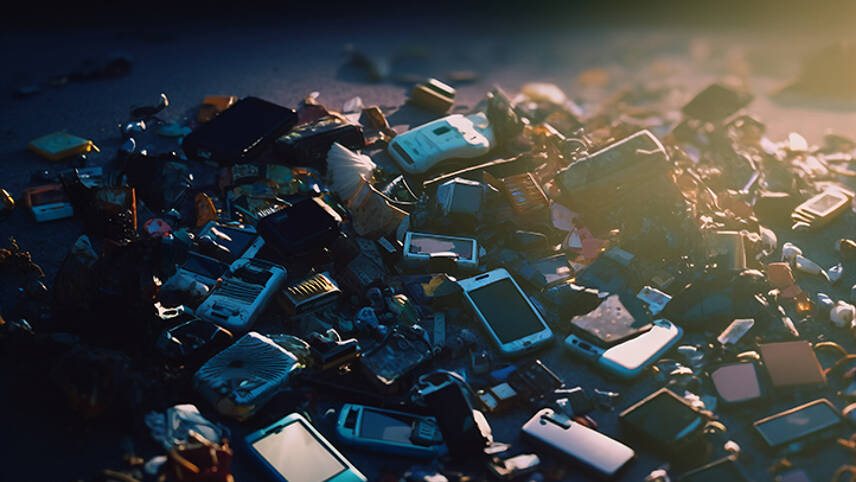Register for free and continue reading
Join our growing army of changemakers and get unlimited access to our premium content

The GSMA found that a refurbished phone’s climate impact can be 87% lower than a newly manufactured alternative
Under the new set of pace targets, operators aim to collect a minimum of 20% of new mobile devices distributed directly to customers through take-back schemes and ensure that all collected used mobile devices undergo repair, reuse, or transfer to controlled recycling organisations by 2030.
The operators include BT Group, Globe Telecom, GO Malta, Iliad, KDDI, NOS, Orange, Proximus, Safaricom, Singtel, Tele2 and Telefonica.
The GSMA found that a refurbished phone’s climate impact can be 87% lower than a newly manufactured alternative. If properly recycled or given a second life, more than five billion phones could be recovered. Additionally $8bn of gold, palladium, silver, copper, rare earth elements, and other critical minerals could be recovered and enough cobalt to produce 10 million electric car batteries.
The GSMA’s chief regulatory officer, John Giusti, said: “Most mobile operators around the world are already taking concrete actions to rapidly cut their carbon emissions over the next decade. However, mobile operators are determined to go further.
“We believe in the need to move to a more circular economy to reduce the impact of mobile technology on the environment and applaud the latest commitments from 12 leading operators to accelerate the transition to greater circularity. In addition to the environmental benefits, more efficient and responsible use of resources could lower costs and make devices more affordable for the unconnected.”
The new goals aim to propel the mobile industry’s transition away from the traditional ‘take-make-dispose’ model of mobile phone materials, aligning with the GSMA’s Strategy Paper for Circular Economy: Mobile Devices initiative. The initiative aims for the industry to launch devices with extended lifetimes, 100% recyclable and recycled content, reliance on 100% renewable energy, and zero waste.
The production phase of a smartphone contributes significantly to its energy cost, with manufacturing and mining operations accounting for 85-95% of its annual carbon footprint due to its energy-intensive nature.
According to a report from The Restart Project, the total carbon footprint in the manufacturing of mobiles is at least equal to the Philippines’ annual carbon emissions, a country of more than 100 million people.
Operators acknowledge the need for additional efforts to tackle concerns that hinder handset returns, including data privacy, the preservation of cherished memories stored on devices, and the desire to keep a spare device.
In 2019, a survey conducted by the Royal Society of Chemistry revealed that 51% of UK households possessed at least one unused electronic device, of which 69% intended to keep them as spares. Among those who chose not to recycle their electronic devices, 37% expressed concerns about data and security.
Over the past years, the global mobile phone replacement cycle has extended by 10 months, shifting from 24 months in 2014 to 34 months in 2021. This trend is projected to persist, with the refurbished mobile device market estimated to surpass $140bn by 2030, compared to $49.9bn in 2020, according to the GSMA.
Tele2’s head of sustainability, Erik Wottrich, said: “As the environmental and business benefits of implementing a circular business model are clear, I hope that many more operators around the world will join us in the ambition of zero waste and increased take-back rate by 2030.”


Please login or Register to leave a comment.